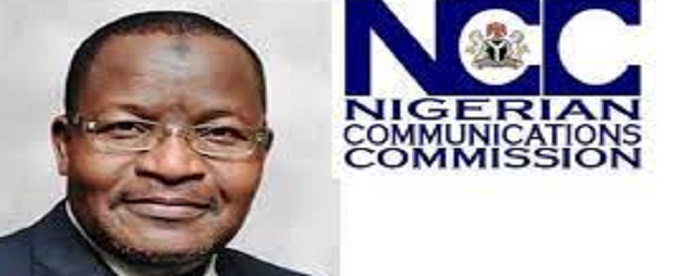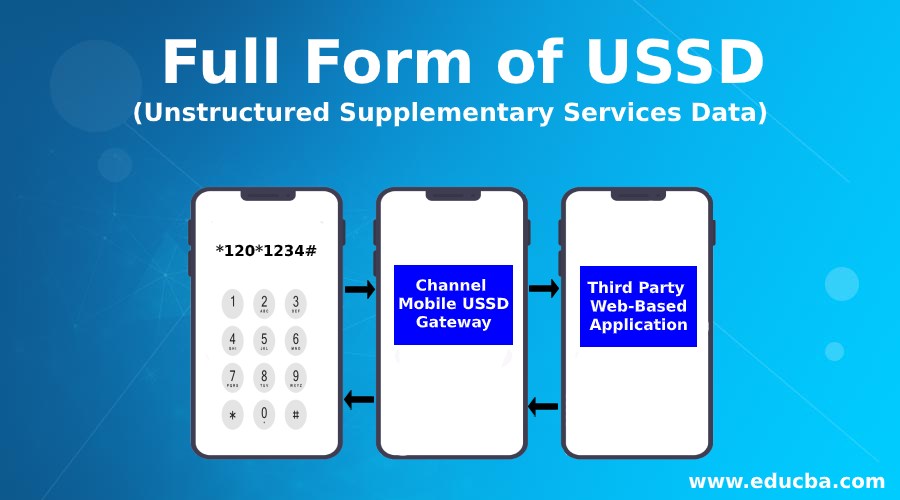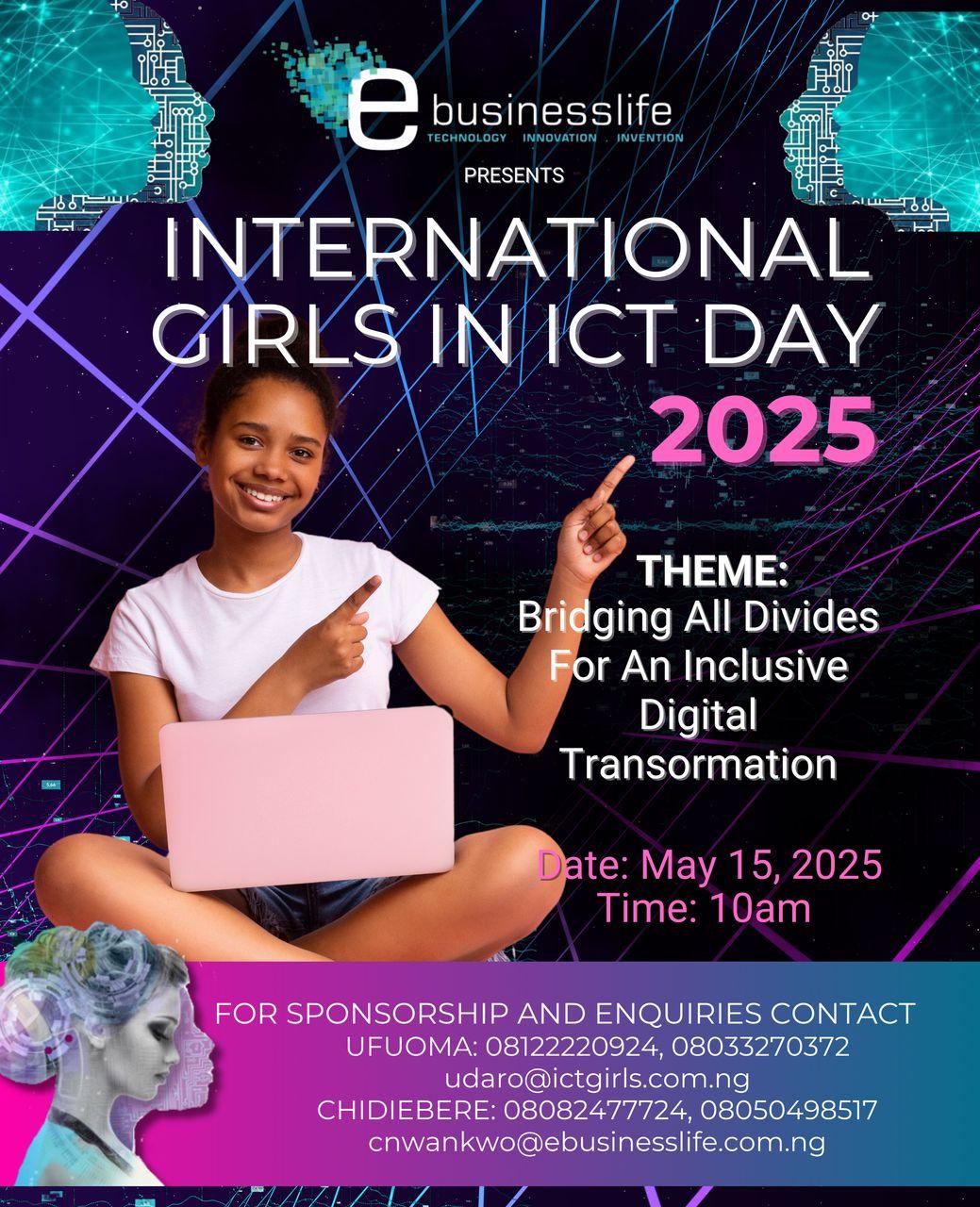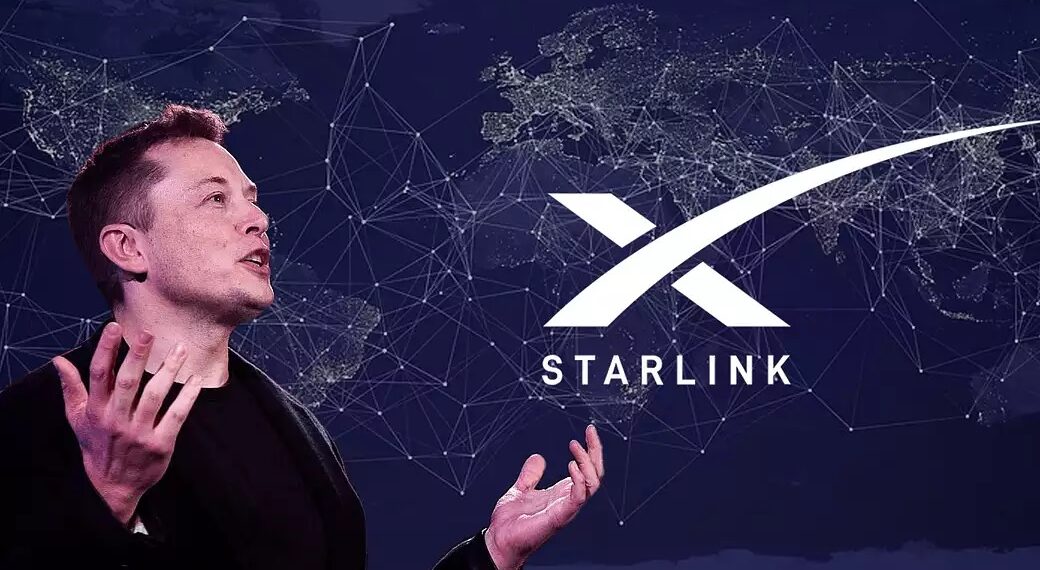Telecom
Nigerians Won’t be Forced to Use 5G Technology- NCC

Nigerian Communications Commission (NCC), has said that telecoms subscribers in the country would not be forced to use 5G technology, touted as capable of delivering higher multi-Gbps peak data speed when launched.

And while spectrum for 5G is expected to be auctioned by the last quarter of the year, the Commission has hoped that by 2025, urban centres in Nigeria would have been 5G enabled.
Prof. Umar Danbatta, executive vice chairman, NCC, revealed this in Lagos, at the Industry Consumer Advisory Forum (ICAF) Quarter Meeting and Open Forum 2021.
He said Nigeria could not be left behind in the deployment of the technology.
Danbatta, who was represented by Efosa Idehen, director, Consumer Affairs Bureau, said the 5G communication technology is the next evolution of the mobile communications technology, which is capable of creating new opportunities for growth in the economy by enabling new and dynamic business models and opening up new opportunities and markets.
He stressed that the technology also provides tremendous improvements in interpersonal communications with several innovations and services.
There is no doubt that this “new era of survival” after the COVID-19 pandemic has nudged Nigeria to accelerate technological innovations and the development of emerging technologies.
Danbatta said he is particularly gratified that the ICT sector has been exemplary in advancing growth without breaching official protocols instituted to manage the spread of the pandemic.
“It is indeed noteworthy that the NCC has been consistent and profound in instituting regulatory measures that will promote 5G deployment,” he said.
According to Danbatta, as a precursor to the commencement of commercial deployment of 5G network in the country, the NCC submitted a 5G Development Plan (5GDP) to the Federal Government for final approval towards effective deployment of the technology to cover major urban areas by 2025.
He explained that the Plan is to ensure efficient assignment of spectrum for deployment of 5G technology; create an enabling environment for investment in the industry; ensure the security of the 5G ecosystem and the protection of data; as well as ensure that international best practices and globally-accepted standards and specifications are entrenched in Nigeria’s 5G ecosystem.
Gbenga Adebayo, chairman, Association of Licensed Telecoms Operators of Nigeria (ALTON), and lead paper presenter, said the fact that earlier generations of technology have not been fully utilised does not mean the country shouldn’t deploy new technologies.
Adebayo, who said 5G has come to stay in the country, again, debunked claims that the technology has anything to do with COVID-19 or cancer. He said conspiracy theories about mobile phone technology have been circulating since the 1990s, and have long historical roots.
According to him, expert opinion issued by authorities such as the WHO, GSMA and ICNIRP have affirmed that base station signals and radiation are non-ionising and do not pose a risk of predisposition to cancer or any other disease.
He said the International Agency for Research on Cancer (IARC) noted that there is limited evidence that radio frequency signals could cause cancer in humans.
Ahead of planned deployment, the ALTON boss said the Federal Government, mobile network operators (MNOs) and the NCC have a responsibility to drive awareness on the benefits of the deployment of 5G.
According to him, this awareness involves sensitisation of citizens through different forums such as ICAF.
He said: “Awareness also involves the Federal Government actively participating in regional and global engagements on the deployment of 5G to ensure that we stay abreast of developments and best practice, e.g. the 2020 updated guidelines of the ICNIRP.”
Telecom
Banks, Telcos Mull New Billing Plans for USSD Airtime Payments

Telecom customers will have to pay for the use of Unstructured Supplementary Service Data (USSD) by having their airtime deducted, according to an information obtained by the Guardian.

According to reports, discussions to implement an end-user billing system between telecom providers and deposit money banks (DMBs) are presently in advanced stages.
A system that charges the client directly for utilizing the USSD service instead of the service provider is known as end-user billing.
This implies that, independent of any further fees the bank may impose, the customer’s mobile account (airtime or direct billing) is deducted for the USSD session.
This is a shift from the conventional corporate billing approach where banks were invoiced for USSD usage.
Gbenga Adebayo, chairman, Association of Licensed Telecommunications Operators of Nigeria (ALTON), said to The Guardian that conversations are underway, and the mechanisms are being fine-tuned to suit subscribers, telcos and DMBs.
r billing, which the banks have been supporting for a while, may help prevent accumulated debts, as seen by the current crisis between the banks and telecom providers, according to Adebayo.
Therefore, we have started talking about switching to end-user paying without causing customers’ services to stop working.
The banks now charge you and debit your account when you make USSD (Debit alert for the transfer). Banks won’t debit you again after the talks are over; instead, your airtime will be used immediately. The funds will be deducted from your airtime rather than your account by the banks.
“The discussion has begun; we will work with the banks to agree on a migration plan. The banks have long been demanding a solution to the USSD debt problem, and this will be it. In order to prevent consumers from being charged for services they did not receive, the parties must nevertheless agree that systems must be updated and operations must be transparent.
“The discussion is underway,” he said.
Recall that on September 16, 2019, the Bank Chiefs wrote to ALTON on behalf of the Body of Banks’ Chief Executive Officers (BOBCEO) proposing a “orderly implementation” of end-user charging for bank clients that would “align with the standard practice for USSD billing.”
The bank executives expressed disapproval of splitting the profits from USSD transactions with the telcos in the note to ALTON.
They stated that the service providers, who supply the platform for the USSD service, had suggested deducting N4.50k per 20 seconds from the fees that clients pay the banks. The banks objected, claiming that it would increase the cost by 45% immediately.
However, the dynamics, especially the underlying technology, made the concept unpopular with the telcos at the time.
Instead, the carriers had demanded corporate billing. According to the telecoms, the banks declined to attend a roundtable in 2020 to address the issue and put a definitive stop to it.
As a result, the USSD obligations that are presently being recovered from were greatly exacerbated by the matter’s failure to be resolved five years ago. Since March 16, 2021, subscribers have been charged N6.98K for each USSD transaction.
The authorities instructed DMBs and MNOs to agree on payment options, either a lump amount or instalments, by January 2, 2025, in a circular jointly issued by the Central Bank of Nigeria (CBN) and NCC.
They stated that the payments must be finished by July 2, 2025, if they are chosen.
It is required that 60% of all pre-API bills be paid in full and as a final settlement. By January 2, 2025, a concerned DMB and MNO must agree on payment options (lump amount or instalments).
To be clear, if a DMB suggests instalment payment, it must be based on equal monthly instalments, and the money must be paid by July 2 at the latest.
Just to be clear, if a DMB suggests instalment payment, it must be based on equal monthly instalments, and the money must be paid by July 2 at the latest.
In accordance with past decisions made by the CBN and the NCC, DMBs are required to settle eighty-five percent (85%) of all unpaid invoices between the relevant DMB and MNO (also known as post-API debts) by December 31, 2024, following the implementation of Application Programming Interfaces (API) in February 2022.
Additionally, within a month of the invoice being served, 85% of all subsequent invoices must be paid off.
The NCC will initiate the required regulatory procedures to switch back to End-User Billing (EUB), provided that the directions in Paragraphs 1 and 2 above are satisfactorily implemented and that the agreement between DMBs and MNOs for the switch to EUB is furthered.
Only MNOs and DMBs that fully adhere to the aforementioned paragraphs 1 and 2 will be permitted to switch to EUB. In due order, the CBN and the NCC will offer guidelines on public education initiatives related to the changeover. MNOs are required to implement the “10-second rule” for USSD invoicing until the transitional procedures in paragraph 3 above are finalized.
Thus, any USSD session that lasts less than 10 seconds is not eligible for billing. “DMBs with prepaid billing options have the opportunity to migrate to EUB, subject to the execution of the required regulatory processes,” the authorities added.
Telecom
MTN, Digital Encode, Back eBusinesslife Girls In ICT Campaign

Leading Mobile network operator, MTN Nigeria has reaffirmed its commitment towards ensuring that the gender disparity in the ICT career sector is bridged.

This statement was made with its backing of the 2025 edition of the International Girls in ICT Day campaign being organised by eBusiness Life Communication Limited.
Also, Leading Cybersecurity and Governance, Risk and Compliance (GRC) firm, Digital Encode have also indicated interest in being part of this year’s campaign.
This year’s event, which will hold at the Lagos Oriental Hotel on May 15, 2025, is part of an annual campaign initiated by the International Telecommunications Union (ITU) to sensitise and encourage young women and girls to delve into ICT and related careers, which have been dominated by the male gender. The 2025 theme will be central on “Girls in ICTs: Bridging ALL Divides for an Inclusive Digital Transformation.”
According to the Chief Executive Officer of eBusiness Life Communication and Convener of the event, Mrs. Ufuoma Emuophedaro, the need to sensitise young girls is premised on the need to shape the future of technology and the roles the female gender will play in this.
In Nigeria, a significant gender disparity exists in the tech industry, with women being underrepresented in both education and employment. Studies show that men are almost twice as likely to pursue computer science and technology careers, and women make up only about 20% of the workforce in the ICT sector.
Mrs. Emuophedaro noted that efforts should be made to introduce young girls to career opportunities in technological and technical fields in both the public and private sectors to help them have a wider range of options and contribute their quota in the industry and in the development of the economy.
The support from foremost ICT companies, heavyweights in their sub-sectors, MTN and Digital Encode, underscores the importance of the campaign.
Digital Encode is a leading consulting and integration firm founded in 2003 that specializes in the design, management, and security of business-critical networks, telecommunications environments and other Information Technology (IT) infrastructures. Recognised in the industry for its vendor independent perspective, the firm’s expertise lies in solving multifaceted, complex enterprise network security and audit problems, also with the concept that a company should run its IT organisation as a business.
MTN Nigeria is one of Africa’s largest providers of communications services, connecting over 87 million people in communities across the country with each other and the world. Guided by a vision to lead the delivery of a bold new digital world, MTN Nigeria has been in the forefront of this campaign to build human capacity in Nigeria.
Digital Encode also provides advisory services toward improvements in Information Security Management, Network Security, Vulnerability Management, Penetration Testing, Computer Forensics, Risk Management and Business Continuity Management.
As part of the 2025 event, there will be a practical AI (Robotic) competition among female students from select secondary schools, roundtable discussion, interactive and motivational talk from renowned women ICT professionals, and Schools’ STEM quiz competition, among others.
International Girls’ Day is an initiative launched through ITU Resolution 70 with the idea of creating a global environment that will empower and encourage girls and young women to consider careers in the field of information and communication technologies.
The ITU declared the 4th (fourth) Thursday of April every year as a special day to celebrate and encourage girls and young women to consider careers in ICT, and the society is reminded to support them in their choice.
This year’s event will have top government and private sector executives in attendance.
Telecom
How Starlink Took over Africa’s Largest Internet Market

Starlink has become a major internet service provider in Nigeria, driven by its reliable, high-speed access.

Its success has led to local internet service providers losing subscribers and raising concerns about unfair competition, according to restofworld.org, which reports global tech stories.
Critical institutions have avoided using Starlink’s network because of national security concerns.
In the sprawling electronic market of Lagos’ Computer Village, an item is flying off the shelves: the Starlink kit.
These satellite dishes, with their distinctive white faces and plug-and-play simplicity, represent more than just easy internet availability in Nigeria. They symbolize a technological coup in Africa’s most populous nation, where terrestrial broadband or wireless options are unreliable or inaccessible.
“I have about 20 pieces in the store, but I’m sure they will go before today ends or at the latest tomorrow morning,” Quadri AbdulFatai, a local electronics vendor who claims to have sold more than a thousand units in just 13 months, told Rest of World. “Starlink is very hot now.”
In January 2023, Nigeria became the first African market that Starlink entered.
Two years later, it now ranks second among internet service providers, which are classified separately from large telecom players by the Nigerian authorities.
With over 65,500 users at the end of the third quarter last year, Starlink is second only to 16-year-old Lagos-based ISP Spectranet, according to data from the Nigerian Communications Commission (NCC), the country’s telecom regulator.
At current growth rates, analysts predict Starlink will become Nigeria’s top internet service provider by mid-2026.
The secret to Starlink’s meteoric rise lies in a simple market reality: Nigerians are desperate for reliable, high-speed internet, which local providers have consistently failed to deliver, according to Temidayo Oniosun, managing director at Space in Africa, a market intelligence company focusing on the continent’s space and satellite industry.
Telecom companies and traditional ISPs in Nigeria suffer from frequent outages, sluggish speeds, and spotty coverage, especially in rural areas where terrestrial infrastructure is limited or nonexistent.
“Nigerians want high-speed and reliable internet, and Starlink’s technology offers that better than anyone else,” Oniosun told Rest of World.
“That’s why it is growing at an incredible speed. While the services aren’t the cheapest, launching with different pricing in different African markets shows that Starlink understands the markets.”
Starlink has made investments in building infrastructure in Nigeria. It has built a base station in Lagos and plans to add facilities in neighboring Abeokuta and Port Harcourt, Nigeria’s oil hub.
These stations will enable the company to beam low-latency internet directly to its rapidly growing user base throughout the country. Low latency is the ability of a network to respond with minimal delay.
Starlink’s success has unsettled competitors. When the company increased subscription prices last October, local operators cried foul, accusing regulator NCC of applying double standards by ignoring their requests for tariff reviews.
The regulator eventually granted local providers a 50% tariff increase in January, but customer perception had been damaged.
The regulator has fostered a fair and enabling environment that empowers all licensed operators, including Starlink, “to compete, innovate, and grow in response to market needs,” an NCC spokesperson told Rest of World.
The regulator has fostered a fair and enabling environment that empowers all licensed operators, including Starlink, “to compete, innovate, and grow in response to market needs,” an NCC spokesperson told Rest of World.
The regulator has licensed over 27 satellite-based communications services providers and issued over 90 landing rights to space segment operators, which include established providers like Eutelsat, SES, Viasat, and YahClick.
“In recent times, the commission has observed growing interest from both established global players and new entrants (especially those providing emerging satellite services) seeking to enter the Nigerian market,” the spokesperson said.
“This level of engagement reflects growing investor confidence in Nigeria’s digital economy and the enabling environment provided by the commission.”
Nigeria has 241 licensed ISPs, of which only 124 had active users as of the third quarter of 2024, collectively serving more than 300,000 subscribers, according to NCC data.
Starlink’s arrival has been nothing short of catastrophic for incumbents. Market leader Spectranet lost 8,428 subscribers between the last quarter of 2023 and the third quarter of 2024, while Tizeti lost about 700 in the same period.
While the losses appear modest, they are significant in the context of the small size of the market served by Nigeria’s ISPs.
The internet landscape is more dominated by mobile network operators MTN, Airtel, Globacom, and 9mobile, which collectively serve 132.4 million subscribers, providing both internet access as well as traditional phone services.
The playing field is fundamentally uneven, said Temitope Osunrinde, chief marketing officer at Tizeti.
The challenges for local operators include buying spectrum and building local capacity, hiring talent, and paying multiple taxes. If digging for fiber, they have to contend with multiple local government right-of-way permits and also area goons.
“You can’t compare Starlink with local companies because they don’t have to set up local capacity, nor hire and set up an office,” Osunrinde told Rest of World.
Gbenga Adebayo, chairman of the Association of Licensed Telecommunications Operators of Nigeria (ALTON), believes Starlink’s success reflects not a failure of local providers but “a challenging operating environment, which includes issues such as multiple taxes, multiple regulations, high right-of-way charges, infrastructure vandalism, and the rising cost of foreign exchange.”
Yet for ordinary Nigerians, these industry complaints hold little water compared with the tangible benefits of reliable connectivity. “For me, it was less speed and more concern about constant internet blackouts during meetings,” Olumide Lewis, a Lagos-based tech worker who recently installed Starlink, told Rest of World. “Since we bought our Starlink, we have had some peace of mind. We don’t spend our time thinking about the bad internet again because everything just works.”

 General News2 days ago
General News2 days agoWorld Bank Announces $800m Support for Nigeria’s CCT Initiative

 General News3 days ago
General News3 days agoSanwo-Olu, Others Grace Launch of 50-Bed Hospital in Surulere by Avon Medical

 E-Financial3 days ago
E-Financial3 days agoCBN Pumps in Additional $150m into Forex Market to Safeguard Naira

 E-Financial3 days ago
E-Financial3 days agoSEC Says CBEX, other Unregistered Digital Platforms are Illegal

 Telecom3 days ago
Telecom3 days agoMTN, Meta Partner to Enhance Voice and Video Calling Quality

 Broadcasting3 days ago
Broadcasting3 days agoKONFAM 89.5 FM Hits Airwaves in Lagos Tomorrow

 E-Business3 days ago
E-Business3 days agoSERAP Calls for Withdrawal of Nigeria’s Data Act Amendment

 E-Financial3 days ago
E-Financial3 days agoKenyan CBN Okays Access Bank Full Acquisition Of NBK



























